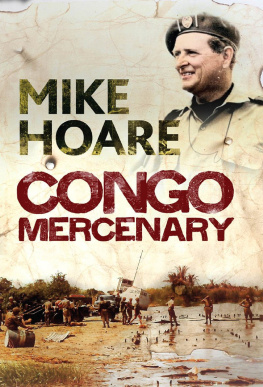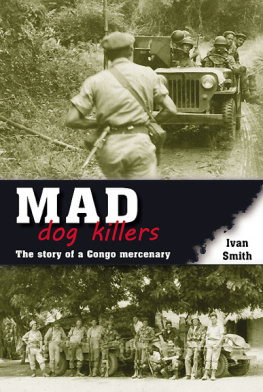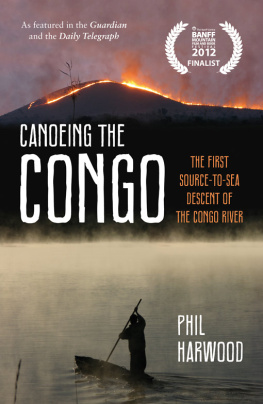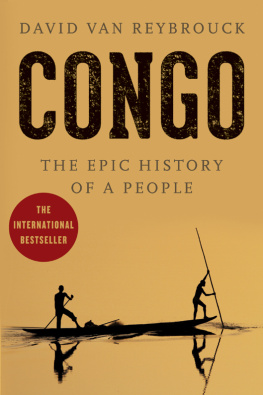THE KATANGESE GENDARMES
AND WAR IN CENTRAL AFRICA
THE KATANGESE GENDARMES AND WAR IN CENTRAL AFRICA
Fighting Their Way Home
Erik Kennes and Miles Larmer

This book is a publication of
Indiana University Press
Office of Scholarly Publishing
Herman B Wells Library 350
1320 East 10th Street
Bloomington, Indiana 47405 USA
iupress.indiana.edu
2016 by Erik Kennes and Miles Larmer
All rights reserved
No part of this book may be reproduced or utilized in any form or by any means, electronic or mechanical, including photocopying and recording, or by any information storage and retrieval system, without permission in writing from the publisher. The Association of American University Presses Resolution on Permissions constitutes the only exception to this prohibition.
 The paper used in this publication meets the minimum requirements of the American National Standard for Information SciencesPermanence of Paper for Printed Library Materials, ANSI Z39.48-1992.
The paper used in this publication meets the minimum requirements of the American National Standard for Information SciencesPermanence of Paper for Printed Library Materials, ANSI Z39.48-1992.
Manufactured in the United States of America
Library of Congress Cataloging-in-Publication Data
Names: Kennes, Erik, author. | Larmer, Miles, author.
Title: The Katangese gendarmes and war in Central Africa : fighting their way home / Erik Kennes and Miles Larmer.
Description: Bloomington : Indiana University Press, 2016. | Includes bibliographical references and index.
Identifiers: LCCN 2015047636| ISBN 9780253021304 (cloth : alk. paper) | ISBN 9780253021397 (pbk.)
Subjects: LCSH: Katanga (Congo)MilitiaHistory. | Front de libration nationale du CongoHistory. | Congo (Democratic Republic)HistoryAutonomy and independence movements. | AngolaHistoryAutonomy and independence movements. | Africa, CentralHistory20th century.
Classification: LCC DT665.K3 K46 2015 | DDC 967.51803dc23
LC record available at http://lccn.loc.gov/2015047636
1 2 3 4 5 21 20 19 18 17 16
Dedicated to the memory of Grgoire Kabobo,
son of Antoine Munongo, son and scholar of Katanga
Contents
Photo gallery follows .
Acknowledgments
OVER THE TWENTY years or so in which this book has been in development, the authors have been assisted by many more people than it is possible to name here.
First and foremost, we are particularly grateful to the former Tigres themselves, without whom this book would not have been possible. Among the dozens who provided invaluable assistance, the most important are: Justin Mushitu, an active member of the Tigres in Angola in 19741977 and in Sweden until the 1990s, who patiently explained their history during many visits to his refugee home in Stockholm and who generously shared his archives; Dogratias Symba, influential during key periods from 1977 until the toppling of Mobutu in 1997; Daniel Mayele, who shared his meticulously kept archives, which document the history of anti-Mobutu resistance during the 1970s and 1990s; Henri Mukachung Mwambu and Irung a Wan, key political actors for the movement in Angola, who shared many useful insights; and Jean Pierre Sonck, who shared his invaluable documentation on Katanga and who is one of the foremost experts on its history. Among the military ex-Tigres, we express our deepest thanks to Generals Pascal Kapend, Franois Kapend, and Sylvain Mbumba Kadhafi. Colonel Vincent de Paul Nguz was a tremendous help and assisted in research, and Colonel Robert Yav, Elie Kapend, Colonel Yav Nasser, and, last but not least, General Nathanal Mbumba were valuable sources of information. In Belgium, Colonel Ren Pire often shared his insights and experience of the Katangese Gendarmerie. From the political wing of the Tigres, we are very grateful to Jacques Cartier Mutombo, Jrme Nawej, Joseph Kabwit, Yves Nawej and Nickel Rumb.
The initial impetus for this study can be traced back to Filip Reyntjens at the University of Antwerp (IDPM), who greatly facilitated the first research visits undertaken by Erik Kennes between 1997 and 1999. Generous support was also given by the director of the Section for Contemporary History of the African Museum in Tervuren, Dr. Gauthier de Villers, during the years 19992009. A first outline of the history of the Katangese gendarmes was as a result included in Erik Kenness doctoral study, which in turn would never have been possible without the outstanding assistance and creative insights of Bogumil Jewsiewicki.
Miles Larmers research was generously supported by the UK Arts and Humanities Research Council, which funded a Research Fellowship in 20112012; and the British Academy, which provided a Small Grant at the start of his research in 20072008. His research was also enabled by many colleagues at the universities of Sheffield Hallam, Sheffield, and Oxford.
Researchers on the subject who assisted with interviews, documents, and contacts include most of all the very knowledgeable Crispin Kalumba Nsanki, Justin Mulangu, Livain Mwangal, Peter Ngoy Kaodi, Raymond Nshimba, Grgoire Kabobo, Hon. Mwando Nsimba, Ren Pelissier, John Cann, and the expert journalist Jean-Franois Bastin. In Portugal, Pezarat Correia, Admiral Rosa Coutinho, Major General Renato Marques Pinto, and Colonel Oliveira Marques were particularly helpful. Nathaniel Kinsey-Powell kindly provided access to documents from the French Foreign Ministry and the Jimmy Carter Library.
We are deeply grateful to the many archivists who assisted our research: Jos de Quintanilha Mantas of the Torre do Tombe state archives in Lisbon; the UNHCR archives in Geneva; the Portuguese Military History archive; the 25 April Documentation Centre at the University of Coimbra; the US State Department archives in College Park, Maryland; the UK National Archives at Kew; the Contemporary History Library of the Royal Museum of Central Africa in Tervuren; Neels Muller at the Foreign Affairs archives in Pretoria; and the colonial archives housed at the Belgian Foreign Ministry.
The research was developed through presentations at conferences and seminars at the following institutions: the universities of and universities in Botswana, Cambridge, Edinburgh, Exeter, Florida, Kalemie, Kinshasa, Leiden, Leuven, London (SOAS), Oxford, Paris, Pretoria, Sheffield, Sheffield Hallam, Stockholm, Swaziland, and Zambia. Draft research findings were presented at various conferences including the African Studies Association (United States) conference, the European Conference on African Studies, and the African Studies Association of the United Kingdom. Numerous contributors and organizers of these events provided invaluable advice. The authors would particularly like to thank Jocelyn Alexander, David Anderson, Nir Arielli, Filip de Boeck, Daniel Branch, James Brennan, Andrew Cohen, Bruce Collins, Stephen Ellis, Alastair Fraser, Jan-Bart Gewald, Patricia Hayes, Marja Hinfelaar, Lars Huening, Emma Hunter, Bogumil Jewsiewicki, Nathaniel Kinsey-Powell, Prince Kaumba Lufunda, Ren Lemarchand, Reuben Loffman, Giacomo Macola, Henning Melber, Bob Moore, Justin Pearce, Catherine Lee Porter, Filip Reyntjens, Daniel Spence, Henning Tamm, Thomas Turner, Theodore Trfon, Harry Verhoeven, Luise White, Benjamin Ziemann, and the anonymous readers of the draft manuscript for their support, insights, and criticism. All remaining omissions, oversights and errors are our own.
The book draws on material previously published by the authors in Cold War History and the Journal of Imperial and Commonwealth History. We are grateful for permission to reuse a limited amount of that material from those articles, which can be accessed at www.tandfonline.com .
Next page








 The paper used in this publication meets the minimum requirements of the American National Standard for Information SciencesPermanence of Paper for Printed Library Materials, ANSI Z39.48-1992.
The paper used in this publication meets the minimum requirements of the American National Standard for Information SciencesPermanence of Paper for Printed Library Materials, ANSI Z39.48-1992.